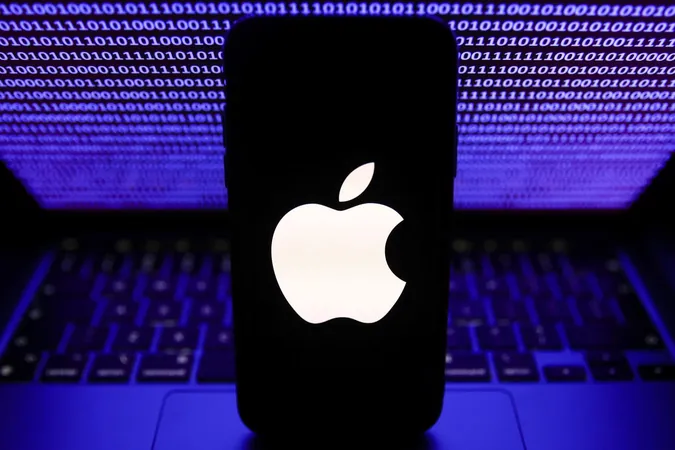
Urgent Alert for 2 Billion Apple Users: Beware of Suspended Apple ID Scams!
2024-11-25
Author: Jacob
Urgent Alert for 2 Billion Apple Users: Beware of Suspended Apple ID Scams!
As Black Friday approaches, scammers are stepping up their game. A new wave of phishing attacks is specifically targeting the vast community of Apple users, producing threatening warnings that state, “Your Apple ID is suspended.” With over 2 billion active users of Apple devices including iPhones, iPads, and MacBooks, it's no surprise that these cybercriminals are honing their tactics for maximum effectiveness.
What Is the Apple ID Suspension Scam?
The Apple ID suspension scam plays upon users' fears and urgency. With many eager to take part in Black Friday deals, these cyber crooks exploit people's spending mindsets by sending misleading emails claiming that suspicious activity has been detected on their Apple accounts. These messages urge immediate action, pressuring recipients to click on links that could compromise their personal information.
These scams are becoming increasingly sophisticated, thanks to the use of AI tools that allow hackers to craft messages closely resembling authentic communication from Apple. Cybercriminals employ techniques to create a false sense of urgency, manipulating users into taking hasty actions without verifying the legitimacy of the communication.
Jake Moore, a global cybersecurity advisor at ESET and former law enforcement officer for digital crimes, emphasizes the growing prevalence of such phishing scams, stating, “Many people are still manipulated by the clever tactics used by criminal hackers.”
How to Spot a Phishing Attempt
In light of these scams, Apple is advising users to be cautious about any unsolicited messages that request personal information or prompt immediate action. Here are some key tips to help you detect a phishing attack:
1. **Personal Information Mention**: Scammers often reference personal details to gain your trust. 2. **Problem Resolution**: Emails usually contain a sense of urgency, claiming that they want to help rectify a significant issue. 3. **Urgency Over Reason**: Phishing scams create a scenario that pushes you to act quickly, discouraging you from seeking additional validation or contacting Apple directly. 4. **Account Information Requests**: Be wary if a message asks for your account details, passwords, or security codes.
Apple strongly stresses, “We will never ask you to log in to any website, or tap 'Accept' in a two-factor authentication request, or provide sensitive information like passwords or security codes.”
Stay Safe with These Precautions
If you receive an email that raises your suspicion, always verify the sender’s email address for authenticity and avoid clicking on any links. In cases of uncertainty, it is crucial to visit Apple's official website directly for assistance rather than responding to a potentially fraudulent email.
As shoppers gear up for the holiday sales, it’s essential to remain vigilant. Phishing scams are not just a threat; they are an ongoing battle in our digital landscape. Protect yourself and your information—don't fall prey to these devious tactics. Stay informed, stay alert, and keep your accounts secure!









 Brasil (PT)
Brasil (PT)
 Canada (EN)
Canada (EN)
 Chile (ES)
Chile (ES)
 España (ES)
España (ES)
 France (FR)
France (FR)
 Hong Kong (EN)
Hong Kong (EN)
 Italia (IT)
Italia (IT)
 日本 (JA)
日本 (JA)
 Magyarország (HU)
Magyarország (HU)
 Norge (NO)
Norge (NO)
 Polska (PL)
Polska (PL)
 Schweiz (DE)
Schweiz (DE)
 Singapore (EN)
Singapore (EN)
 Sverige (SV)
Sverige (SV)
 Suomi (FI)
Suomi (FI)
 Türkiye (TR)
Türkiye (TR)